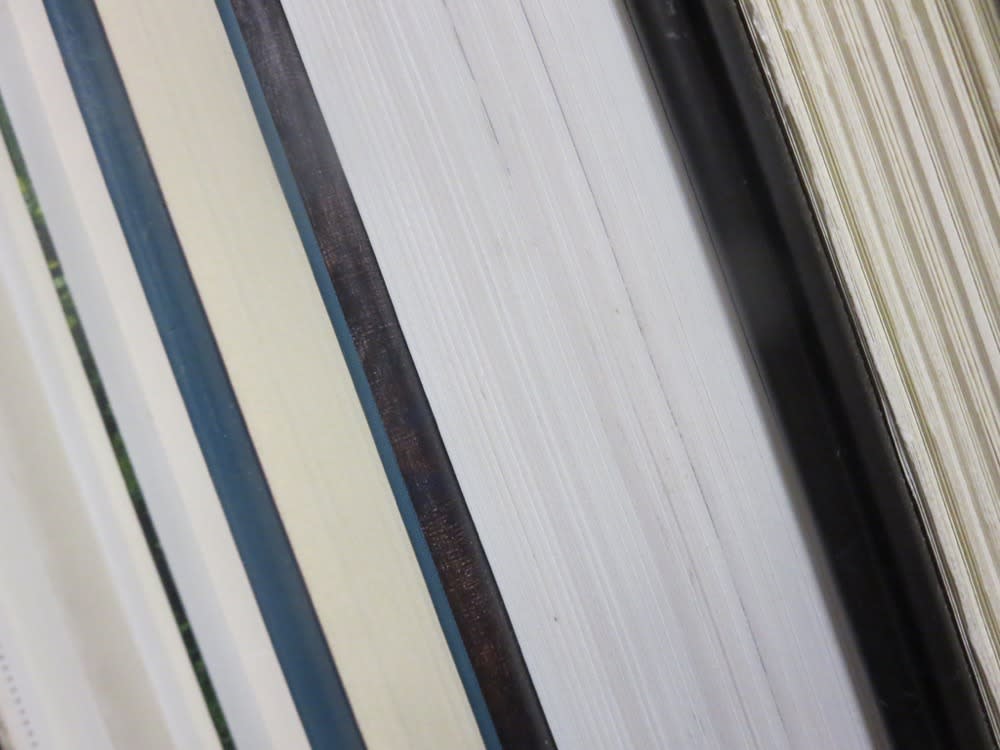Google's Fair Use Victory Is a Win for Us All

(By Rob Pegoraro/Yahoo Tech)
Something crazy happened Friday in the weird world of intellectual-property law. A judge said it was okay to copy all of a copyrighted work and then share bits of it with the public—even if you’re a giant tech company—and then explained clearly how that makes sense and makes us better off.
That makes Friday’s Google Books ruling from the United States Court of Appeals for the Second Circuit not just good for Google, but good for readers everywhere. We all benefit when the author of a book—or a movie or a record or another creative work—doesn’t get to veto every possible reuse and remix of it.
Yes, we scan
This case turned on Google’s project, announced in 2004, to scan and index the full text of millions of books (lent to it by libraries) so that readers could search their contents and see brief snippets of matching text.
The Authors Guild, an association of American writes that dates to 1912, sued Google in 2005 for infringing its members’ copyrights and damaging the market for their work. Ten years later—during which a proposed $125 million settlement between Google and the Guild was scuttled by a judge—a unanimous three-judge Second Circuit panel found Google was within its fair-use rights to run this project.
Judge Pierre Leval’s 48-page ruling focuses on the often overlooked first principle of intellectual property in U.S. law. As he wrote: “The ultimate goal of copyright is to expand public knowledge and understanding.” Improving the ability of creators to make a living through copyright is a pleasant side effect, not the fundamental point of the exercise.
But how do you get from there to granting Google permission to copy all of a book? Through Section 107 of the Copyright Act, which allows for “fair use” exceptions to copyright without actually defining what that phrase should mean in practice.
Judge Leval applied that section’s somewhat vague criteria to the Authors Guild’s claims and found them wanting every time. Google copied entire books? That transformed them into a new searchable medium that allows things like “Ngram” queries for the popularity of certain words over time. Google’s a profitable company? Not a deal-breaker, since such fair-use exercises as news reports and book reviews “are all normally done commercially for profit.”
Most important, what about Google Books’ effect on the market for, you know, books? There’s none worth fighting over, Leval held: A Google Books snippet may help you check a fact, but you can’t claim copyright over a data point like that.
Case by copyright case
But courts haven’t always had such a forgiving view; their sense of fair use has shifted considerably since the 1984 Supreme Court case in which the Betamax VCR was almost held illegal.
This is why people argue over fair use all the time: Not only do the lawyers involve not agree, they sometimes don’t even agree with themselves.
For example, Berkeley law professor Pamela Samuelson and University of Maryland law professor James Grimmelmann separately said that under the pre-search-engine definition of fair use—what Samuelson called “a conventional role of fair use”—Google Books would flunk that test.
As Grimmelmann wrote, the scanning and indexing that Google does not just to books but to Web pages “was once seriously contested and now is not.” It took multiple cases to conclude that it’s okay for a search engine to copy and index somebody else’s Web page, then show a preview of that to visitors.
Consider another case that involved a for-profit company duplicating copyrighted material, but in a way that hardly threatened to steal a sale from a copyright holder: MP3.com, the site that in 2000 lost a court case over a feature that let listeners upload the track lists from their CDs, then listen to MP3.com’s copies of those songs and only those songs over the Internet.
Grimmelmann called that “probably no longer good law.” By 2011, Amazon had no qualms over launching its Cloud Player, a service functionally identical to MP3.com’s offering, without getting permission from every record label.
Both law professors are strong fair-use advocates, yet neither was willing to call another widely criticized copyright case—this year’s jury verdict that Pharrell Williams, Robin Thicke and T.I.’s “Blurred Lines” infringed Marvin Gaye’s “Got to Give It Up”—an unreasonable ruling. See, it’s complicated!
This argument will go on and on
One thing that hasn’t changed much during this expansion of “fair use” is the willingness of copyright holders to indulge in transparent control-freakery. Sometimes, they still get away with it.
See, for instance, the NFL’s absurd complaint that posting GIFs of plays threatens the market for watching football games, which Twitter took seriously enough to suspend two accounts. See also, last year’s ruling that invented an entirely new category of software copyright.
(At least U.S. copyright holders have yet to imitate some of the crazier ideas afloat in the E.U., like requiring search engines to pay a royalty for displaying a snippet of news stories or restricting the commercial use of photos or videos taken from public spaces of buildings and sculptures.)
Another thing that hasn’t changed: “Copyfight" litigation is not a good proposition for startups short on cash and time. You may not like the size and reach of a Google, but when it invests some of its resources in fair-use fights, the benefits aren’t confined to its corporate campus.
Email Rob at rob@robpegoraro.com; follow him on Twitter at @robpegoraro.


